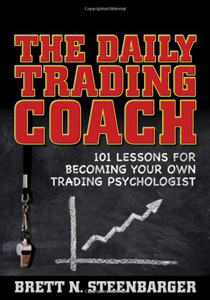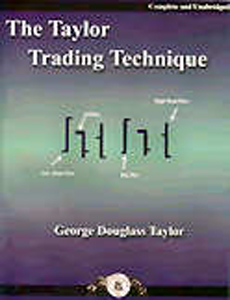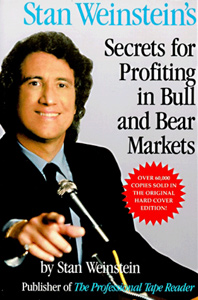Trading Strategy
I suffered a major trading loss recently and I was pondering about my profit and loss calculations. For example, a trading account can start at $500 and be traded up to something like $2000. So that’s a 300% profit on your initial investment. However, what if you have traded your account all the way up to $4000 (or have started your account at that figure) and found you’ve literally burned that trading account down to zero – in your books that would account for a 100% loss.
For Wall Street Traders, high frequency trading is a Godsend. For "mum and dad" investors - sharemarket participants who hold for the long term, this market activity won't disadvantage them as much. However for retail day traders, this type of trading would disturb you. High frequency trading has been credited as being the method big banks and hedge funds such as Goldman Sachs has made a profit in the last year, even with the Global Financial Crisis (GFC) happening.
Professional share traders and investors who trade and invest money for a living use sophisticated methods in their line of work one of which is short selling. You may or may not know that you can actually make money in the sharemarket (stockmarket for our American counterparts) anytime - it doesn't matter if the market is trending up and very bullish, stagnant and going sideways or falling in a bearish market situation.
Yet another perspective on "risking a little or risking a lot": Quantity vs Quality trading...
Just a similar thought to last week's post with the forex trading case study discussing the issues of risking a little or risking the lot. Similar concept, just a different perspective or twist.
A short case study on trading risk and leverage using forex trading as an example:
Is your trading FINE? (Are you Freaked out, Insecure, Neurotic and Emotional when you trade?) Then read more...
Here's the intro:
In the movie "Italian Job," one of the characters responded that they were "FINE". But in their world of underworld dealings FINE is an abbreviation of Freaked out, Insecure, Neurotic and Emotional. So is your trading fine? If it is, then you've got a problem.
Traders simply trade to make money... I discuss the real reasons why you trade.
Everybody is in the market to make money. Simple. Nothing more nothing less. You aren't in the market to play, to have fun, to get excited or to get an adrenalin rush.
This is the third part of a three part series about getting from analysis to trade execution. The first step in my trading is to decide whether or not the trade is worthwhile. This step was outlined in part one. The second step of trade analysis was examined in part two. In this part we shall look at trade execution. I will also underline the importance of being 100 per cent confident when you execute your trading plan. These are basically the three steps that I undertake to enter in a trade no matter which market I trade, be it the forex market or the stock market.
In the previous post we had a look at the first step in how traders get from analysis to finally executing and committing your capital to the trade, be it forex, stocks or futures. The first step was to have yourself a test to determine if the trade is worthwhile for you. You may have your own methods (send me some ideas!), but I suggested one of my qualifiers as the momentum of the trend line of the particular equity you are looking at.
Unless you’re gambling away your capital at the markets, I expect you as a share trader to be doing some due diligence before each trade - analysing the stock or currency pair before making your mind up whether to enter the trade at all then if the price is trading up, down or sideways. It's all the same deal, the same process whether you trade the US stockmarket, the Australian sharemarket or the forex markets.
- How to Trade Forex and Gold Options
- How to Trade the Gold Price and Profit!
- Forex Trading the EUR/USD Pair € EURO and $ US Dollar
- How to Trade Stock Market Indices S&P500
- How to Trade Crude Oil
- Forex Trading Psychology
- What Are Broker Recommendations?
- Free Tickets to Trading & Investing Seminar & Expo ($18) Brisbane 2013
- Stock Calc App
- All About Warrants
- Introduction to Exchange Traded Funds
- Introduction to Exchange Traded Funds: Features
- Introduction to Exchange Traded Funds: Domestic ETFs
- Introduction to Exchange Traded Funds: International ETFs
- Exchange Traded Commodities
- Australian Stock Scan
- Australian Online Share Trading
- List of Trading Books
- Interesting Thoughts about the Australian Dollar
- What's the Meaning of Hawkish?
- Do You Know How To Use the P/E Ratio
- Trading, Religion and Politics - Do They Have Anything in Common?
- Shares that are Volatile that Double and Half in the Short Term
- Telstra (TLS) T3
- Margin Call by E-mail
- The Cost of Holding a Position
- Lack of Disclosure: Compensation from ASX Listed Company
- Unrealistic Returns and Benchmarks
- CMC Markets Down
- Quality versus Quantity Forex Trading
- Woolworths 1H Sales $30.7bn up 3.2%
Date added 31-01-2013 - ASIC Fines CommBank's CommSec
Date added 25-09-2012 - Industry Super Network Calls to Ban High Frequency Trading (HFT)
Date added 22-09-2012 - NAB Launches Online Share Trading Platform
Date added 19-09-2012 - Reserve Bank of Australia Says 23 Countries Holding AUD
Date added 18-09-2012 - Australia Post Digital Mailbox
Date added 10-09-2012 - Winners and Losers of Trading for Week 2
Date added 16-01-2012 - 2012's First Week of the Best and Worst Traded Stocks
Date added 09-01-2012 - 2011's Last Best and Worst Traded Stocks
Date added 05-01-2012 - Best and Worst Pre-Christmas Traded Stocks
Date added 30-12-2011 - Trading Winners and Losers for Dec. 12-16
Date added 19-12-2011 - Best and Worst Traded Stocks for Dec. 5-9
Date added 13-12-2011 - Top 3 Best and Worst Traded Stocks
Date added 05-12-2011 - ASX Glitch Trading Halt
Date added 27-10-2011 - Worst Trade Stocks (and the Best)
Date added 06-08-2011
Top 150 Public Companies Listed on the Australian Stockmarket as at 29/05/2009
- BHP Billiton
- Westpac Banking Corporation (WBC)
- Commonwealth Bank of Australia (CBA)
- National Australia Bank (NAB)
- Telstra (TLS)
- ANZ
- News Corporation (NWS)
- Woolworths Limited(WOW)
- Woodside Petroleum Limited (WPL)
- Rio Tinto
- Westfield Group (WDC)
- Westfarmers Limited (WES)
- QBE Insurance
- CSL
- Newcrest Mining Limited (NCM)
- Origin Energy Limited (ORG)
- Santos Limited (STO)
- AMP Limited (AMP)
- Macquarie Group (MQG)
- Foster’s Group Limited (FGL)



